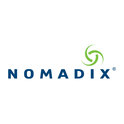

Despite the push toward digital transformation, hoteliers continue to struggle with offering guests more than a baseline experience. Not long ago, staying in a hotel was like getting a glimpse into the future, with innovative technology like air conditioning, color TV and on-demand entertainment that delighted guests with a futuristic experience.
Now that’s all become commonplace, and the average hotel stay offers the same or even less technology than what most people have at home today. It’s not for lack of availability. Plenty of technology exists to deliver that truly futuristic experience once again. Predictive analytics, automation and generative AI promise to deliver, but the hospitality industry is missing a key piece of the puzzle: visibility into guests’ on-property experiences. Despite knowing so much about guests’ pre-book journey and booking experience, once they arrive on property, it’s like they’re in stealth mode—there’s zero visibility into their preferences or behavior during their stay. In the coming year, that has to change in order for property owners to fully reap the benefits of their tech investments across the spectrum. That’s why I expect 2024 to be the year we remove the blindfold on guests’ on-property experiences, driven by these five trends to watch:
In the coming year, we’ll see wider deployment of services like Passpoint to tag users’ devices and use geolocation to track the guest journey in real time, as they experience it. This capability allows hoteliers to know where guests visited for how long and tie this all to their guest profile. This not only provides an unprecedented glimpse into on-site behavior but also enables hoteliers to deliver delightful experiences. For example, if a guest dined in the restaurant during their last stay, offer them a free appetizer on the next visit. Or did they visit the spa for a massage? Offer them a discounted service for a return visit.
In some ways, it’s a similar tradeoff to Google advertising—search users get the information and cultivated results they want in exchange for their data, which can be used to deliver an even more curated experience. It’s a win-win. In fact, IDC's FutureScape: Worldwide Hospitality, Dining, and Travel 20242 Predictions cite that by 2026, nearly two-thirds of hospitality/travel brands will have added location-based awareness to their unified customer data strategies, aiming to drive loyalty and lifetime value while increasing offer/marketing effectiveness by 35%.
Not to mention, IT is left completely out of the conversation: no one is talking to them about integrating systems in order to access on-property data to personalize the guest experience. The people buying the big data analytics covering before and after the stay have not contributed to the cost for capturing the on-property portion of the guest data, perpetuating the gap.
In 2024, that has to change in order for brands to get the most out of their customer engagement strategies and stop leaving data at the door. Getting the two groups together will help fund the expense so that IT can deploy it. Integration, cross-departmental collaboration, and a cohesive strategy will become essential to staying ahead of the competition.
Yet, as guests have grown more comfortable interacting with smart technology like voice assistants at home, the hospitality industry has not kept pace with large scale deployment of these devices on-property.
In the coming year, hotels must reconsider including in-room smart devices to address the growing technology divide between guests home and hotel experience. There are a multitude of benefits to smart room technology, including enhancing guest services, filling gaps created by lean staffing and the ability to access real-time assistance that match the same level of sophistication guests are accustomed to at home. In addition to providing a better guest experience, these technologies can also provide valuable data collection of guests' wants and needs to inform and guide better on-property service delivery.
As guest expectations become more sophisticated, it’s no longer enough to focus on the customer journey up to and through the booking process. In the coming year, implementing technology and infrastructure to gain a 360-degree view of guests’ on-property experiences will be essential in delivering a consistent and relevant engagement strategy that keeps loyal customers coming back and attracts new ones with a spectacular, futuristic experience once again.
1. Future Enterprise Resiliency & Spending Survey - Wave 5, IDC, June 2023 (Total n= 1014; hospitality & travel n=46)
2. IDC’s FutureScape: Worldwide Hospitality, Dining, and Travel 2024 Predictions, Oct 2023 #US49910823
3. IDC's Global Retail Survey, July 2023, IDC #EUR151198923
Contact
Aubrey Coggins
Director of Marketing
Email: Press@Nomadix.com
Organization
Nomadix, Inc.
https://nomadix.com/home.html
21600 W Oxnard St 19th Floor
USA
- Woodland Hills, CA 91367
Phone: 1 818 575 2500
Email: info@nomadix.com
Recent News
 Nomadix Earns Patent for Enhancing Passpoint (Hotspot 2.0) with Loyalty Program Integrations Nomadix Earns Patent for Enhancing Passpoint (Hotspot 2.0) with Loyalty Program Integrations |
 Hotel Technology Forecast: 2024 is the Year to Remove the Blindfold on the On-Property Experience | By Speleos Dravillas Hotel Technology Forecast: 2024 is the Year to Remove the Blindfold on the On-Property Experience | By Speleos Dravillas |
 Nomadix Expands Hotel TV Casting with New Version of Google Chromecast Nomadix Expands Hotel TV Casting with New Version of Google Chromecast |